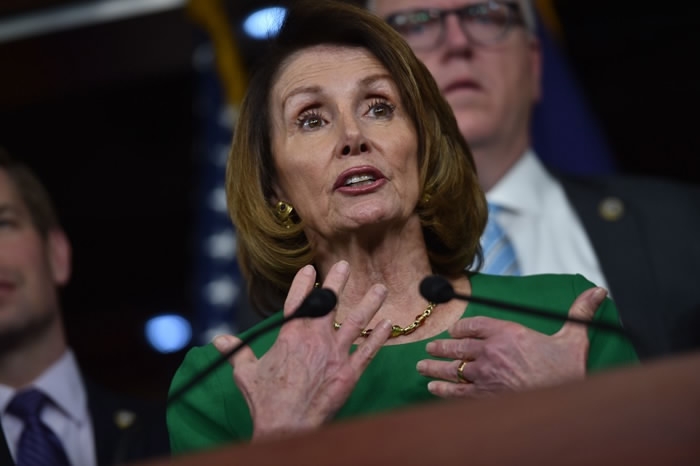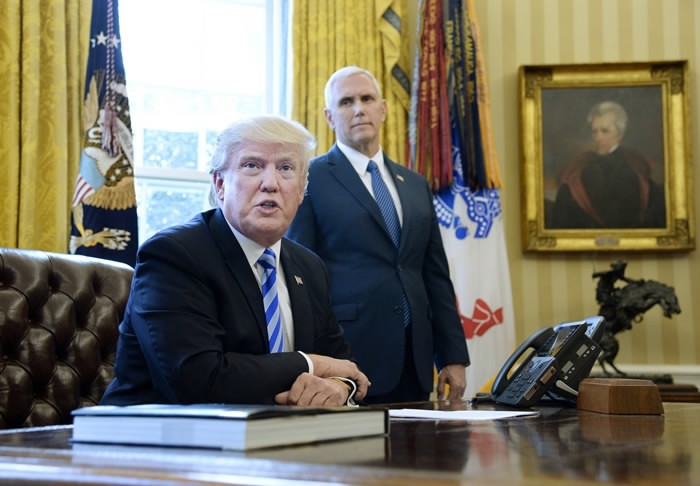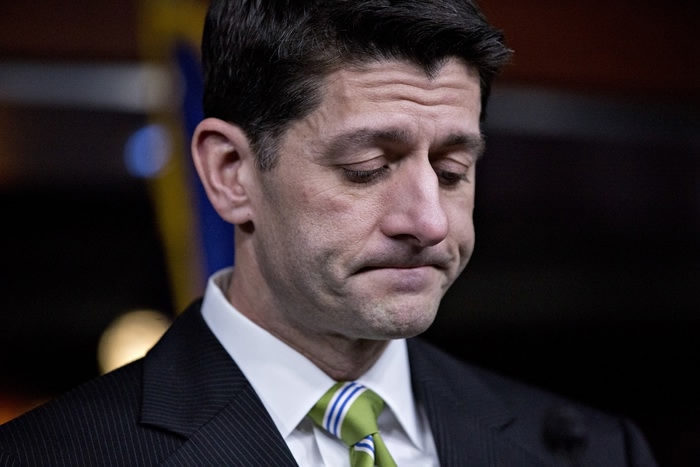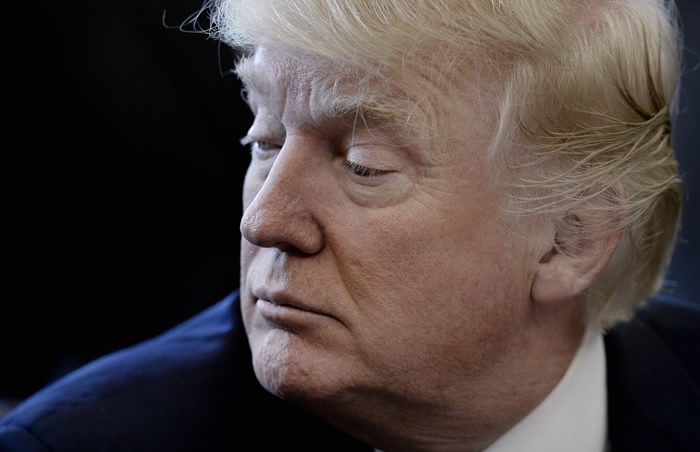US President Donald Trump suffered a stunning political setback on Friday when Republican leaders in Congress pulled legislation to overhaul the US healthcare system, a major 2016 election campaign promise of the president and his allies.
Republican leaders of the House of Representatives pulled the legislation due to a shortage of votes, despite desperate lobbying by the White House and its allies in Congress, ensuring that Trump's first major legislative initiative since taking office on January 20 ended in failure.
House Republicans had planned a vote on the measure after Trump, on Thursday, cut off negotiations with Republicans who had balked at the plan and issued an ultimatum to vote on Friday, win or lose.

US House Minority Leader Nancy Pelosi speaks to the press on Capitol Hill in Washington, DC, on March 24, 2017, regarding the Republican healthcare bill. /CFP Photo
Republican moderates, as well as the most conservative lawmakers, had objected to the legislation. The White House and House leaders were unable to come up with a plan that satisfied both moderates and conservatives, despite Trump's vaunted image as a deal maker.
"We learned a lot about loyalty. We learned a lot about the vote-getting process," Trump told reporters at the White House, although he sought to shift the blame to the Democrats, who were unified in their opposition, even though his party controls the White House, the House and the Senate.
Amid a chaotic scramble for votes, House of Representatives Speaker Paul Ryan, who championed the bill, met with Trump at the White House before the bill was pulled from the House floor after hours of debate. Ryan said he recommended that the legislation be withdrawn from the House floor because he did not have the votes to pass it, and that Trump agreed.
"There were things in this bill that I didn't particularly like," Trump added, without specifying what those were, but expressed confidence in Ryan's leadership.

US President Donald Trump (L) speaks to the media as US Vice President Mike Pence stands at the Oval Office in Washington, DC, US on March 24, 2017. /CFP Photo
"Perhaps the best thing that could happen is exactly what happened today, because we'll end up with a truly great healthcare bill in the future after this mess known as Obamacare explodes," Trump said.
Friday's events cast doubt on whether Ryan can get major legislation approved by fractious Republican lawmakers. "I will not sugarcoat this. This is a disappointing day for us," Ryan said at a news conference, adding that his fellow Republicans are experiencing what he called "growing pains" transitioning from an opposition party to a governing party.
"Doing big things is hard," Ryan added, noting that he got close but failed to muster the 216 votes needed to pass it.
Ryan said he did not know what the next steps would be on healthcare, but called Obamacare so flawed that it would be hard to prop up.

US House Speaker Paul Ryan, a Republican from Wisconsin, pauses while speaking during a news conference on Capitol in Washington, DC, US on March 24, 2017. /CFP Photo
Without the bill's passage in Congress, Democratic former President Barack Obama's signature domestic policy achievement, the 2010 Affordable Care Act – known as Obamacare – remains in place despite seven years of Republican promises to dismantle it.
Repealing and replacing Obamacare was a top campaign promise by Trump in last year's presidential election, as well as by most Republican candidates, "from dog-catcher on up," as White House spokesman Sean Spicer put it during a briefing on Friday.
Trump ‘disappointed’
Trump said on Friday that he was disappointed that a conservative faction in the House of Representatives blocked his healthcare legislation.
Speaking in the Oval Office after a stunning political setback, Trump said the healthcare effort was a victim of stalwart Democratic opposition and any future healthcare legislation would likely need Democratic support.
He also said he was surprised and disappointed by the opposition from the House Freedom Caucus, a group of conservatives who prevented Republicans from using their majority in the House to pass the legislation.

US President Donald Trump listens during a National Economic Council meeting at the Oval Office in Washington, DC, US on March 24, 2017. /CFP Photo
Asked if he felt betrayed by the Freedom Caucus, Trump said he did not.
"No, I'm not betrayed. They're friends of mine. I'm disappointed because we could have had it. So I'm disappointed. I'm a little surprised, to be honest with you," Trump said.
Trump, a New York businessman who won election on November 8 based in part on promises to get "big deals" through Congress, cast the failure as a learning experience.
“We all learned a lot. We learned a lot about loyalty," Trump said. "We learned a lot about some very arcane rules in obviously both the Senate and the House."
(Source: Reuters, AP)
11159km










